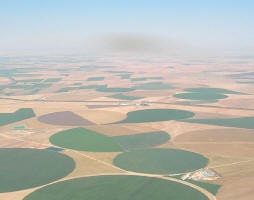 Promoting Twinning of River Basins for Developing Integrated Water Resources
Promoting Twinning of River Basins for Developing Integrated Water Resources
- Basin Organisation (BO) is generally regarded as one of the best solutions to adopt for developing an Integrated Water Resources Management (IWRM) at a catchment level.
- There have then been many types of BO, some of them existing for several
decades, and a lot in a development process. They present a great diversity
of legal statutes and economic schemes.
None of these can be regarded as a model, but by faciliting direct
exchanges on best practices and as well on failed experiments, twinning can
help BO to improve their effectiveness : BO can profit from peers,
regarding administrative, technical and institutional matters, or a quicker
diffusion of the research outputs in the real life.
- A Memorandum of Understanding (MoU) takes the form of a co-operation framework signed by a wide range of organisations, both public and private, which have an interest in the deployment of IWRM practices through twinning of organisations. It is a voluntary agreement, entered into by organisations, prepared to be active participants in developing consensus on issues of common interest, and who are willing to commit both human and financial resources for this purpose, by participating in the operation of Specific Interest Groups (SIGs).
- This MoU implies public commitments from signatories, from which
: to co-operate in the production of recommendations and guidelines for
developing twinning and related services of twinning activities (exchange of
information, exchange of personnel) and of common knowledge representation
systems and dissemination practices.
The project will support staff mobility between twinned BO for enhancing
peer-to-peer exchanges and hands-on periods (0,5 to 2 months).
- The initial partnership gathers 18 participants, but it is forescasted to expand it up to 150 MoU signatories involved in the exchanges, after 48 months.
- The TwinBasin MoU is open for signature by all public and private
organisations that share its aims and objectives and are willing to
contribute to the work in Europe and Third Countries. It's also open for
signature by individuals who are willing to contribute to this work.
| Project number | 1450 | ||
|---|---|---|---|
| Subject(s) | POLICY-WATER POLICY AND WATER MANAGEMENT , RIGHT | ||
| Acronym | TwinBasinXN | ||
| Geographical coverage | France, Spain, Brazil, Sweden, Belgium, South Africa, Hungary, Uzbekistan, Indonesia, Niger, Algeria, Morocco, Senegal, Mexico, Romania | ||
| Budget (in €) | 1710000 | ||
| Programme | INCO MED (FP6) | ||
| Web site | http://www.twinbasin.org/ | ||
| Objectives |
|
||
| Results | 1. Beyond the more or less 20 first signatories (the core founding group and the consortium of the project), it is expected to gather at least 150 signatories within the time schedule of the project (before 4 to 5 years). 2. Active Special Interest Groups (SIGs) will be created along the lifetime of the project. During the first phase, they will mainly focus on the network organisation and tools development (twinning agreements, staff mobility, knowledge management and dissemination). Then SIGs on EU Water Initiative Topics and on IWRM related matters will be organised after a "running in" period since the highest value of the project is to facilitate staff exchanges for peer-to-peer scaffolding. 3. It is expected that 25 to 30 twinning agreements, based on the recommandations issued by SIGs, will be signed between Basin Organisations during the project, included North-South twinning, as well as West-East, North-North and South-South. 4. The promotion and facilitation of exchanges of personnel between BOs for hands-on training of executives, and the promotion of peer to peer support are key activities of the project: it is expected to partially.
5. The TwinBasin Support Service will have provided the IT infrastructure for allowing exchanges by the end of year 1 : this tool will support the dissemination of information on the project, the running of SIG activities and the knowledge management component of the project. 6. Exchanges opportunities between BO managers or executives and
scientists will be developed, during INBO events and at a distance via
periodic web seminars. • Guides and agreement models for organising beneficial twinning arrangements • Exchanges on today topics • Tools for managing knowledge and distance training, etc. |
||
| Period | [01/01/2004 - 01/01/2008] | ||
 you are not logged in
you are not logged in





